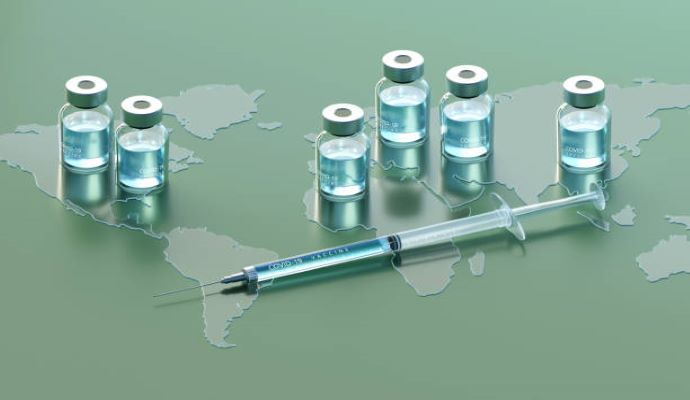Pfizer Plans to Nearly Quadruple COVID Vaccine Costs
On an investor call last month, Pfizer mentioned that it plans to raise the cost of COVID vaccines from $30 to over $100, quadrupling costs.

Source: Getty Images
- As the COVID-19 pandemic progresses, access and affordability to vaccines have been effective tools for public health professionals. Currently, the federal government covers COVID-19 vaccination — the primary dose series and the booster. With uncertainty about renewing their government contract, Pfizer plans to nearly quadruple COVID-19 vaccine costs.
On an investor call last month, Frank A. D'Amelio, Pfizer Inc. CFO & Executive VP of Global Supply, stated, “we continue to expect that we can manufacture up to 2 billion doses in 2021. However, given that it's still early in the year, we are not projecting that we will sell all those doses. Ultimately, we may contract for all the doses. But for the purposes of our initial guidance, we primarily included doses that are covered by strong supply agreements with various governments. Based on this, we currently forecast approximately $15 billion in COVID vaccine revenue.”
Rather than take a cut on their revenue if the government contracts are not renewed, the organization has opted to raise the cost from $30 per dose, which is already steeper than the initial doses that cost $19.50, to $110–130.
On the call, D'Amelio added that “cost of sales for the COVID vaccine revenue will include manufacturing and distribution costs, a royalty payment allowance as well as the payment to BioNTech, representing the 50% gross profit split. All in all, this yields an anticipated income before tax from COVID vaccine in the high 20% range. Let me add that if we contract for the delivery of additional doses during the year, we will provide a guidance update in our subsequent earnings releases.”
Despite organizational claims that research and development costs significantly contribute to drug pricing, historical evidence of a lack of correlation between research and development and drug prices leaves many skeptical. In an article published by JAMA Network Open earlier this year, all 60 drugs analyzed showed no link between research and development and drug prices.
Aside from a potentially unjustified increase in healthcare spending, this price hike has broader implications. First, the rise in cost may also lead competitors to raise the costs of their vaccinations. This domino effect will lead to reduced affordability and, thus, reduced access to immunization. Considering vaccination rates are already lower than what public health professionals find ideal, an additional barrier to vaccination poses a severe threat.
